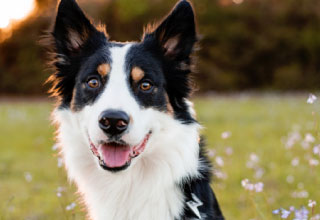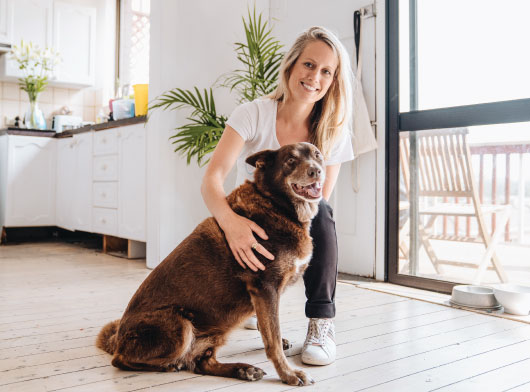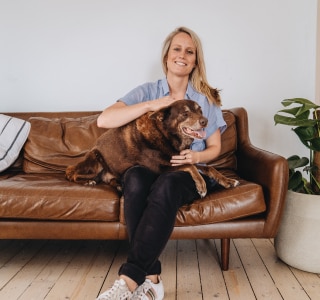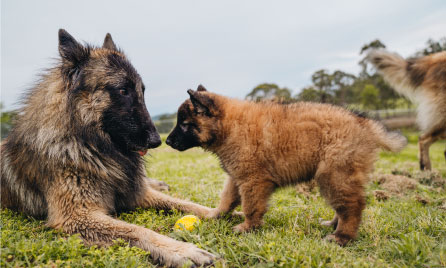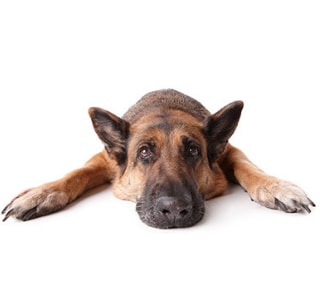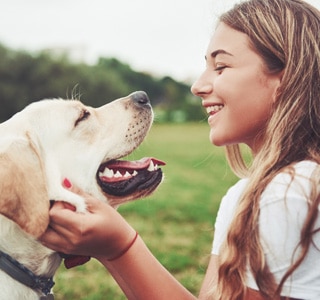- text
-
† Offer available to new Everyday Pet Insurance policyholders, and is limited to 1 membership per eligible policy. The free membership offer (valued at $199p.a) is from the date of your policy commencement, provided your Everyday Pet Insurance policy remains active. You are not eligible to redeem the free membership subscription for cash or credit. VetAssist is a separate subscription based service to the Everyday Pet Insurance product, and is provided independently by Everyday Insurance third party service provider, VetChat Services Pty Ltd (VetChat). Click here for full VetAssist Service terms and conditions. Everyday Insurance reserves the right to vary or remove this offer at any time and will provide reasonable notice of any such changes.
Human food dogs can and can’t eat.
When it comes to food for our furry family members, we want to provide food that is nutritionally balanced, safe and, importantly - that they love!
As diligent pet parents, it's essential to be mindful of what our canine friends consume. While their puppy eyes might plead for a nibble of whatever we're enjoying, not all human foods are safe for dogs.
Let’s take a look at what human foods dogs can and can't eat to keep our loyal companions happy and healthy.
Understanding Canine Dietary Needs:
Just like people, dogs require a balanced diet to thrive. However, it’s natural for pet owners to wonder if their furry friends can enjoy a taste of human food now and then.
It’s important to know that not all human foods are suitable for dogs, and some can even be harmful. Importantly, just because a diet works for one pet, it does not mean it will work for another - same principle for us humans.
Assuming your pet is fed a balanced diet - you can try some human food for treats - as long as it’s less than 10% of their daily balanced diet. Be aware also, that some dogs can be allergic or intolerant to foods that are widely seen as safe.
Safe Human Foods for (most) Dogs:
Lean Proteins: Cooked chicken, turkey, and lean beef are safe options for dogs, provided they are boneless and free from seasoning or marinades.
Fruits: Many fruits are safe and nutritious for dogs, including apples, bananas, blueberries, and watermelon. See list below for those to avoid.
Vegetables: Dogs can enjoy a variety of vegetables, such as carrots, broccoli, green beans, and sweet potatoes, either cooked or raw. See list below for those to avoid.
Rice and Pasta: Plain, cooked rice or pasta can be a bland yet safe option for dogs with upset stomachs, providing a source of easily digestible carbohydrates.
Dairy: While some dogs are lactose intolerant, small amounts of plain yogurt or cheese can be a tasty and safe treat for those who tolerate dairy well.
Foods to Avoid:
Chocolate: Chocolate contains theobromine, which is toxic to dogs, and depending on the type of chocolate and amount eaten it can cause symptoms ranging from vomiting and diarrhea to seizures and sadly, even death.
Grapes and Raisins: These seemingly harmless fruits can lead to kidney failure in dogs, making them a definite no-no.
Onions and Garlic: All forms of onions and garlic, including powdered, raw, or cooked variations, can damage a dog's red blood cells and lead to anemia.
Avocado: While a nutritious snack for humans, avocado flesh can be okay in small amounts for dogs, but ingestion of the pit is a risk for causing blockage of the tummy.
Xylitol: This artificial sweetener, commonly found in sugar-free gum and some baked goods, is extremely toxic to dogs and can cause rapid insulin release, leading to hypoglycemia and liver failure.
Alcohol: Even a small amount of alcohol can be dangerous for dogs, leading to symptoms like vomiting, diarrhea, difficulty breathing, and even coma. Never offer alcoholic beverages to your furry companion.
Macadamia nuts: These are known to be toxic to dogs and can lead to symptoms such as weakness, vomiting, tremors, and even temporary paralysis in dogs.
Keeping Our Canine Companions Safe:
As devoted pet parents, it's our responsibility to ensure our furry friends' safety and well-being at all times. By understanding what human foods are safe for dogs and which ones to avoid, we can prevent potential health risks and keep our four-legged family members thriving. Remember, moderation is key when offering human food to dogs, and it's always best to consult with a veterinarian if you're unsure about a particular food's safety.
Key takeaways:
While it's tempting to share our meals with our canine companions, not all human foods are suitable for dogs. By being mindful of what we feed our furry friends and sticking to safe options, we can ensure their health and happiness for years to come. From lean proteins and fruits to avoiding toxic treats like chocolate and grapes, let's prioritise our dogs' well-being and continue to cherish the special bond we share with them.
Related articles.
- text
-
Everyday Pet Insurance policies entered into for the first time prior to 17 July 2023 and subsequent renewals of those policies are issued by The Hollard Insurance Company Pty Ltd ABN 78 090 584 473, AFSL 241436 (Hollard), arranged and administered by PetSure (Australia) Pty Ltd ABN 95 075 949 923, AFSL 420183 (PetSure) and promoted and distributed by Hollard’s Authorised Representative (AR) Woolworths Group Limited ABN 88 000 014 675, AR 245476 (Woolworths).
Everyday Pet Insurance policies entered into for the first time on or after 17 July 2023 and subsequent renewals of those policies are issued by PetSure and promoted and distributed by PetSure’s AR, Woolworths.
Any advice provided is general only and does not take into account your individual objectives, financial situation or needs. Please consider the Product Disclosure Statement (PDS) to ensure this product meets your needs before purchasing, or choosing to continue with the product. PDS and Target Market Determination available at insurance.everyday.com.au/pet-insurance.
